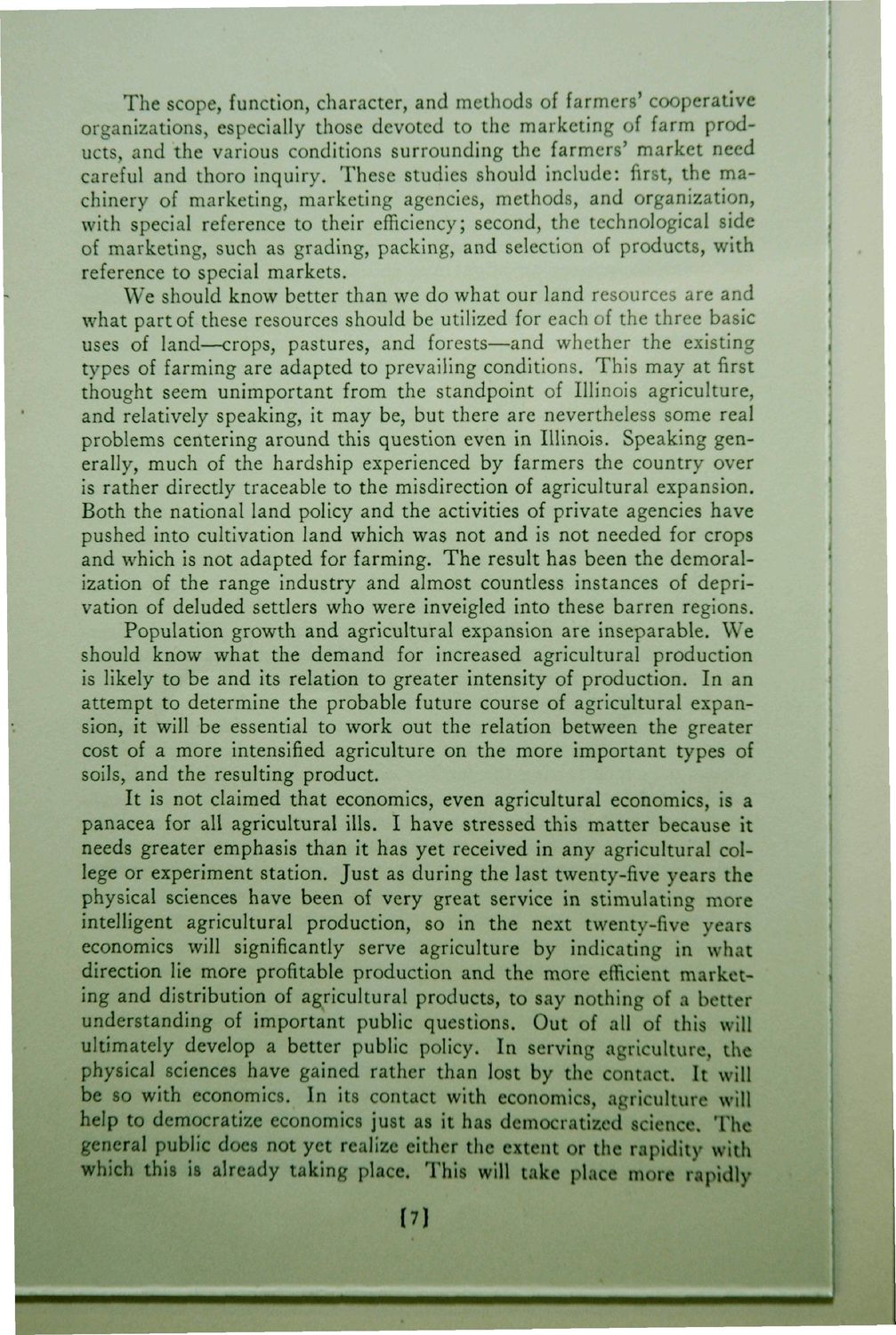| |
| |
Caption: Dedication - New Ag Building Speech
This is a reduced-resolution page image for fast online browsing.

EXTRACTED TEXT FROM PAGE:
The scope, function, character, and methods of farmers' cooperative organizations, especially those devoted to the marketing of farm products, and the various conditions surrounding the farmers' market need careful and thoro inquiry. These studies should include: first, the machinery of marketing, marketing agencies, methods, and organization, with special reference to their efficiency; second, the technological side of marketing, such as grading, packing, and selection of products, with reference to special markets. We should know better than we do what our land resources are and what part of these resources should be utilized for each of the three basic uses of land—crops, pastures, and forests—and whether the existing types of farming are adapted to prevailing conditions. This may at first thought seem unimportant from the standpoint of Illinois agriculture, and relatively speaking, it may be, but there are nevertheless some real problems centering around this question even in Illinois. Speaking generally, much of the hardship experienced by farmers the country over is rather directly traceable to the misdirection of agricultural expansion. Both the national land policy and the activities of private agencies have pushed into cultivation land which was not and is not needed for crops and which is not adapted for farming. The result has been the demoralization of the range industry and almost countless instances of deprivation of deluded settlers who were inveigled into these barren regions. Population growth and agricultural expansion are inseparable. We should know what the demand for increased agricultural production is likely to be and its relation to greater intensity of production. In an attempt to determine the probable future course of agricultural expansion, it will be essential to work out the relation between the greater cost of a more intensified agriculture on the more important types of soils, and the resulting product. It is not claimed that economics, even agricultural economics, is a panacea for all agricultural ills. I have stressed this matter because it needs greater emphasis than it has yet received in any agricultural college or experiment station. Just as during the last twenty-five years the physical sciences have been of very great service in stimulating more intelligent agricultural production, so in the next twenty-five years economics will significantly serve agriculture by indicating in what direction lie more profitable production and the more efficient marketing and distribution of agricultural products, to say nothing of a better understanding of important public questions. Out of all of this will ultimately develop a better public policy. In serving agriculture, the physical sciences have gained rather than lost by the contact. It will be so with economics. In its contact with economics, agriculture will help to democratize economics just as it has democratized science. The general public does not yet realize either the extent or the rapidity with which this is already taking place. This will take place more rapidly m
| |